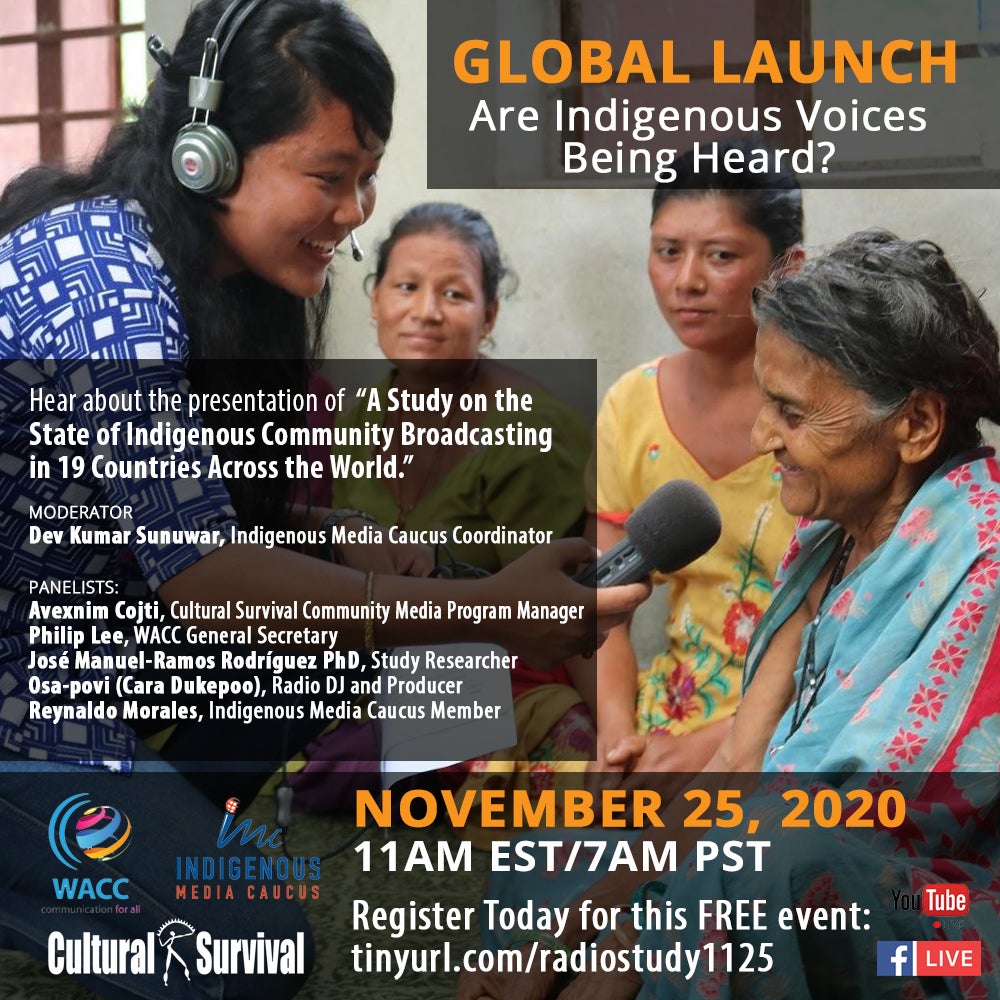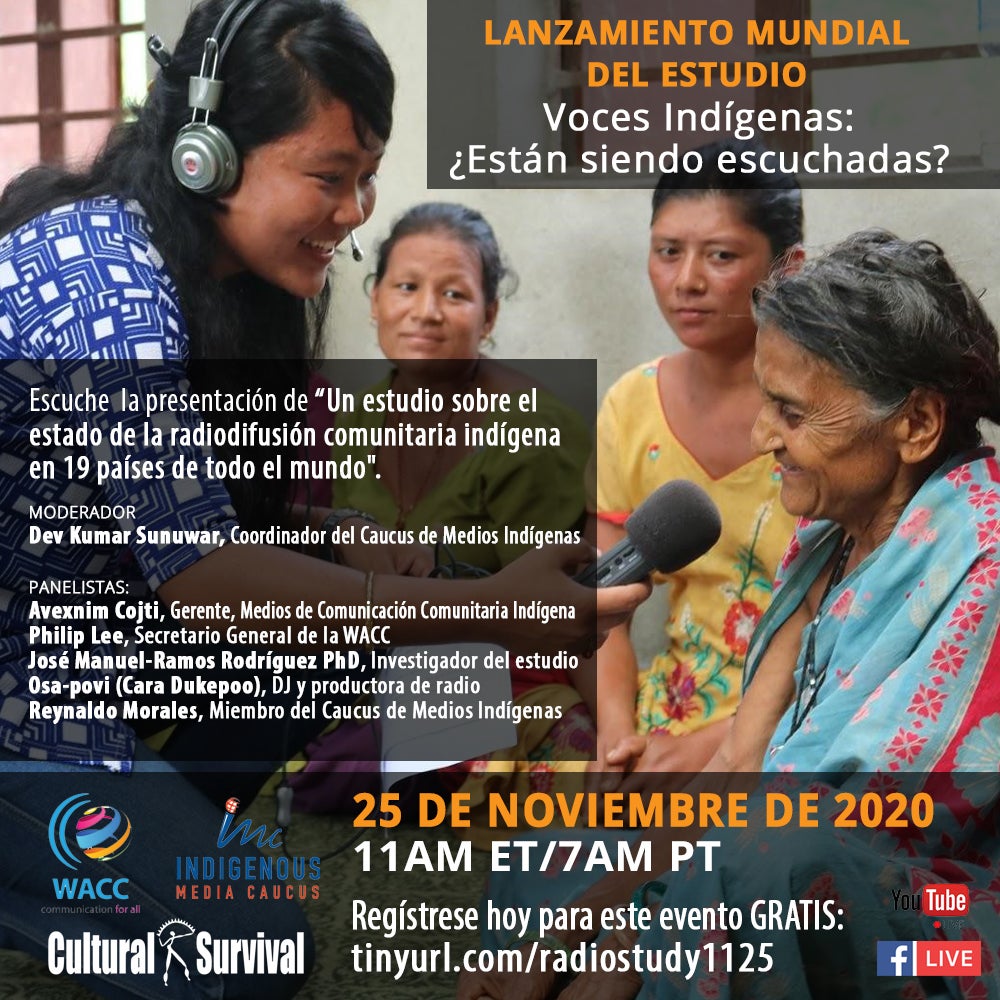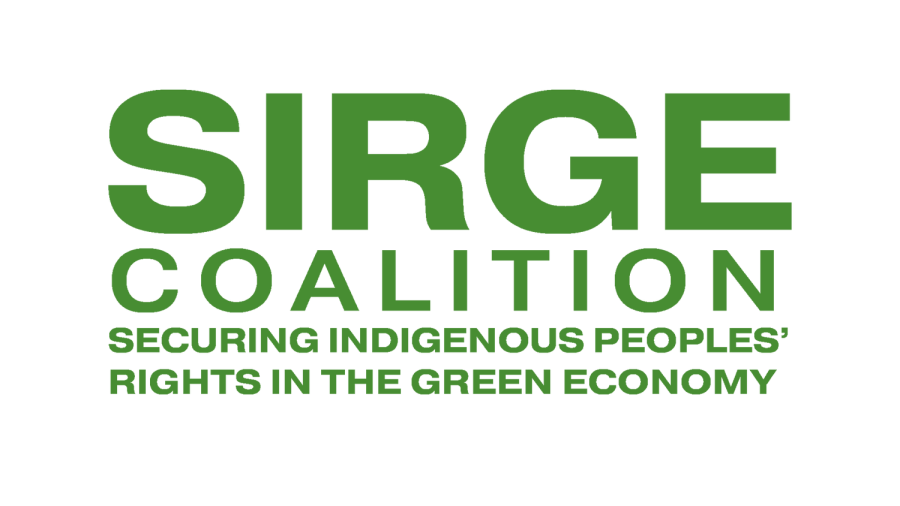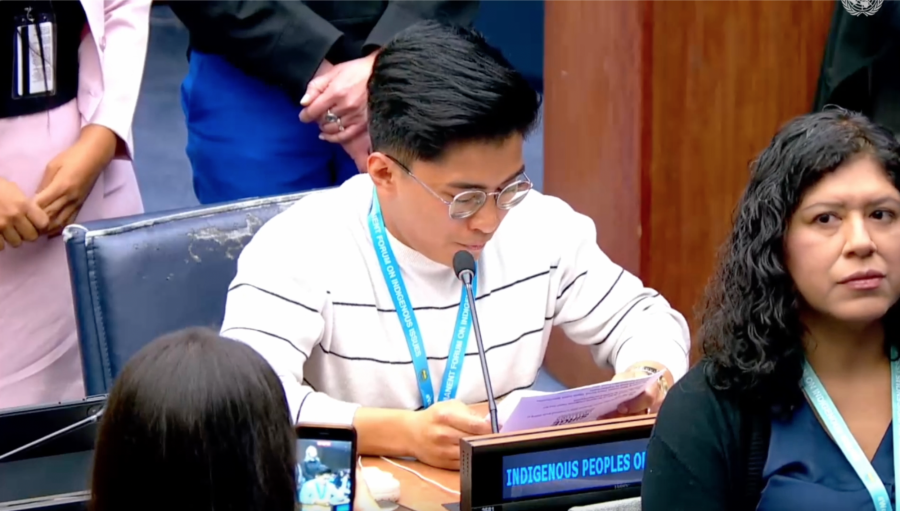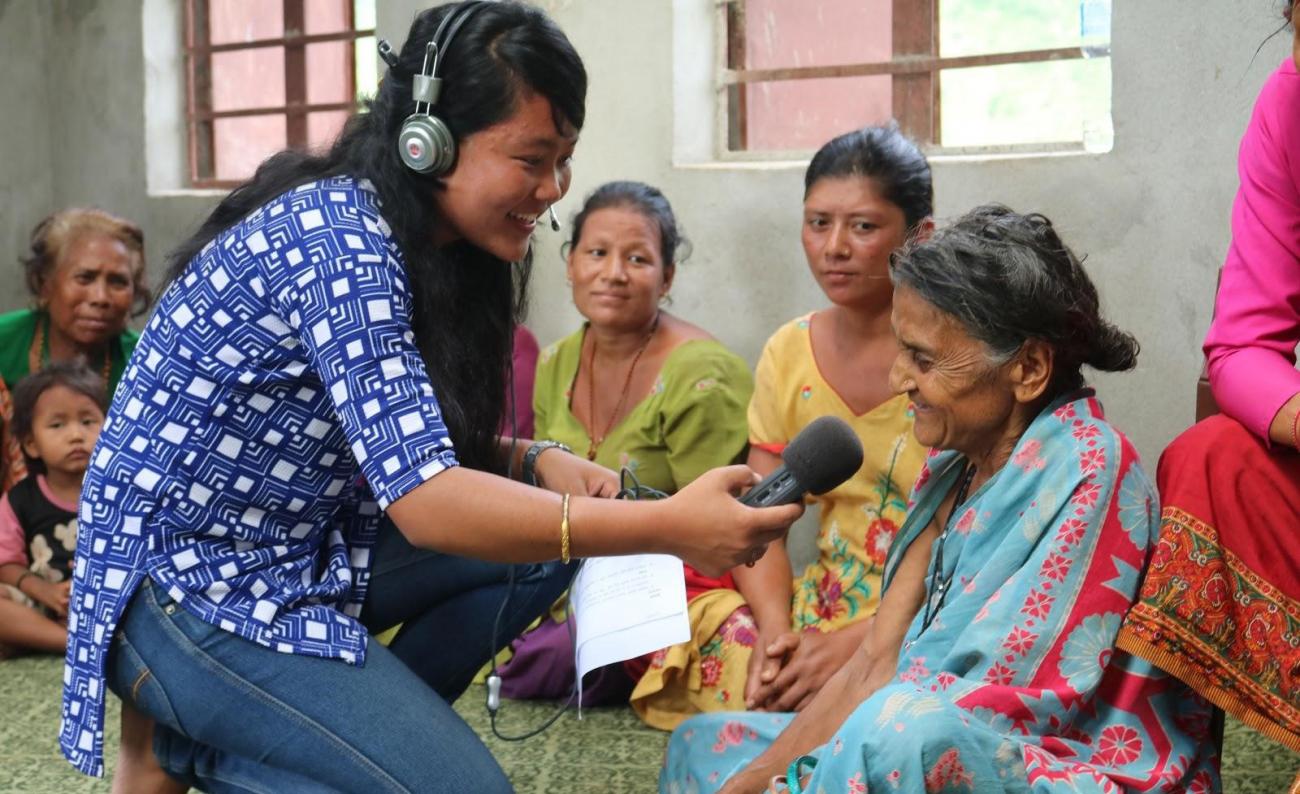
On November 25, 2020, the Indigenous Media and Communication Caucus, a thematic group of Indigenous media practitioners, makers, and communicators at the United Nations will release a study titled “The State of Indigenous Community Radio Globally.” The study was jointly commissioned by the Indigenous Media and Communication Caucus, Cultural Survival, and WACC, and covers 19 countries.
The study is a comprehensive snapshot of the status of Indigenous community radio stations in different parts of the world, depicting the implementation of Indigenous Peoples’ right to their own media, as guaranteed by UNDRIP Article 16.
Indigenous Peoples continue to face obstacles in accessing media for many reasons, including their geographic location, discrimination, costs for operation and access to license, and language and legal barriers. Indigenous Peoples living in isolated areas have little physical access to urban-based centered media. Similarly, a lack of awareness of human rights and the right to access information further contributes to obstacles.
Despite challenges, progress has been made by Indigenous Peoples globally in asserting their rights to their own media as Indigenous cultures, needs, and aspirations that are not reflected in mainstream media. Community radio has been a powerful tool to keep Indigenous cultures, languages, and traditions alive, as well as to inform Indigenous communities about relevant issues and events in their own languages.
Indigenous-led community radio supports the revitalization and promotion of Indigenous languages, serves as a source of alternative media, builds awareness of Indigenous rights, and promotes Indigenous Peoples’ right to self-determination. In many countries, Indigenous media is threatened by antagonistic attitudes by both government agents and commercial media. Similarly, in many places, mainstream media is only available in dominant languages, making it inaccessible to many Indigenous Peoples and hampering Indigenous Peoples’ rights to access to information in their languages. This issue contributes to the marginalization and loss of Indigenous languages. Indigenous media practitioners and communicators have had to work under threats, intimidation, and regularly experience violence perpetrated by government agents. Many Indigenous journalists live in fear of violence and criminalization simply for exercising their right to freedom of expression, especially when reporting on divisive issues related to environmental protection, land rights, social movements, human rights, and local politics.
This study sheds a light on the status of Indigenous media globally and aims to bring the problems faced by Indigenous community media broadcasts to a larger audience. The study will be the basis of international advocacy at international fora, including the United Nations, for the right to freedom of expression within legal frameworks, as well as for better laws and policies to access community or non-commercial radio frequencies.
The study includes individual country reports and equally responds to the need to gather information on the advancements made and obstacles found in complying with the UN Declaration on the Rights of Indigenous Peoples Article 16. The study also points out the main challenges and paths to be followed to promote the growth and consolidation of Indigenous community radio.
The study does not intend to be a comparative study, as it is based mostly on qualitative data. A comparison is given to support the analysis of the results. The report offers a general framework to understand the concept of community radio and provides a short review of its origins and evolution and includes 19 country reports. The study also includes a collective analysis regarding the legal status of Indigenous community radio and the development of Indigenous community radio experiences in the different countries and focuses on the content of Indigenous community radio as an attempt to highlight the motivations and concerns of Indigenous Peoples to gradually overcome historical and current discrimination and marginalization.
The global launch of the study is happening online, November 25, 2020, 11:00am ET. Join us!
The study will be available in Spanish and English.
For further information, contact:
- Dev Kumar Sunuwar, Coordinator Indigenous Media Caucus dev.kumar@culturalsurvival.org
- Philip Lee, General Secretary, WACC, PL@waccglobal.org
- Avenim Cojti, Community Media Program Manager, Cultural Survival avexnim@cs.org
